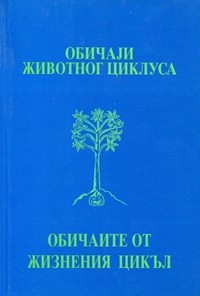Църковният брак в България след 1989 г. – традиция или мода
Ecclestiastical Matrimony in Bulgars after 1989 – Tradition or Fashion
Author(s): Evgeniya Krsteva-Blagoeva
Subject(s): Cultural Anthropology / Ethnology
Published by: Етнографски институт САНУ
Summary/Abstract: The basic aim of this paper is to determine the most important motivation responsible for young Bulgars’ decision whether to take the ecclestiastical matrimony or not during the first ten years of so called democracy period. The answer is to be seeked on how much the post-1989 ecclestiastical matrimonies "boom" could be observed as a returning to tradition which was banned and rejected during a totalitarism period, or it is a matter of the fashion which concerns certain prestige inherent to all of the contemporary religious manifestations. The main problem to be interpreted is how the level of being religious (real or imagined) affects the decision for the ecclestiastical matrimony; what is the way the marriaging couple understand the essence of sacrament they’re iniciated to; what are their personal experience of that moment etc. Several models of ecclestiastical matrimony – mostly dependable on family education – will be analysed: cathegorical rejection of the matrimony, which is the most common among people from the Communist Party supporting families, who look negatively towards those wedding in church without being in true faith; the transitional variant of not being married in church, but going there for lighting a candle after the civil ceremony and before the celebration party in the restaurant; the most common variant is that young people without infact being religious make decisions for ecclestiastical matrimony considering it more solemnly and more prestigous; the group of young people who seriously take their Orthodoxy and who insist on testamony infront the God is not numerous. The certain hierarchy of the prestigousness of Orthodox churches in Sofia will be considerd according to the question of their desirability for making a matrimony at them. The greatest pressure of young couples to be married at is on the Cathedral church of St. Alexander Nevskiy where the weddings are mostly forbidden, which is the main reason of desiring to be married at that church for people who ceremony consider at most as a prestige.
Book: Обичаји животног циклуса у градској средини
- Page Range: 267-278
- Page Count: 12
- Publication Year: 2002
- Language: Bulgarian
- Content File-PDF

